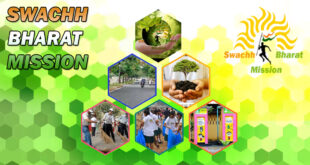We need to seek out narratives beyond those of upper-caste, urban, non-disabled, cisgender women Like any other movement, it is hard to define ‘Me Too’ as it unfolds. Historically, it is important to acknowledge its origins in Black feminism and Tarana Burke’s call, in 2006, for solidarity among survivors in sharing experiences of sexual harassment. But, as a hashtag, #MeToo became an online movement last year when American actor Alyssa Milano expressed support for her friend Rose McGowan’s allegations against Harvey Weinstein. It was meant to be a scalar exercise, to give people a sense of the magnitude of the problem, if women started sharing their stories of sexual harassment using the hashtag. So it has become, and how. The movement has created a critical mass of survivors and spurred a conversation worldwide about breaking silence, combating shame, shattering disbelief; and creating safe environments, empowered communities and avenues for redress. #MeToo succeeded in that because the elites of showbiz, media and academia recognised the grass-roots work done by lower-class women of colour and the movement engendered solidarity across race and class lines. Ms. Burke thus made it to the Oscars and the cover of Time Magazine, alongside more powerful and privileged women. Now that #MeToo has finally arrived in India, let us take a cue from this context that is undoubtedly ‘Western’, yet instructive for its intersectional roots. So, we may at this point acknowledge the context that preceded the present moment, one of Dalit women’s resistance, which has for over four decades challenged the routine forms of sexual harassment and violence. From the Mathura case to the Bhanwari Devi case, the Indian movement has been defined by the struggles of Dalit-Bahujan and Adivasi sisters. Thus, our roots too, are intersectional. The lesson from our own movement and that of the West is the same: that sexual harassment is dictated not only by sex or gender, but also by factors like people’s race, caste, religion, colour, region, age, disability and sexuality. Race and caste divides aggravate the experiences of sexual harassment, while privilege in terms of the two make a difference in averting, seeking help and recovering from abuse.
Source : https://www.thehindu.com/todays-paper/tp-opinion/taking-metoo-to-the-subaltern/article25232117.ece
 Chinmaya IAS Academy – Current Affairs Chinmaya IAS Academy – Current Affairs
Chinmaya IAS Academy – Current Affairs Chinmaya IAS Academy – Current Affairs



